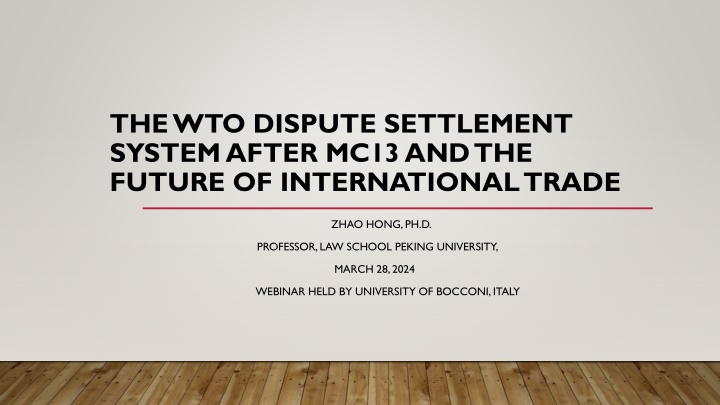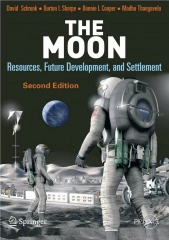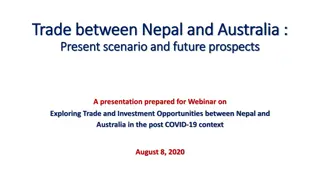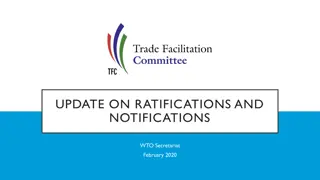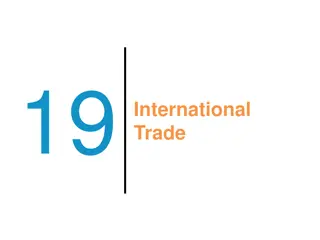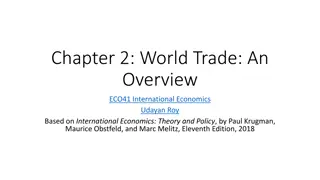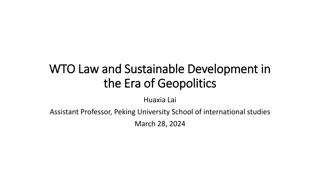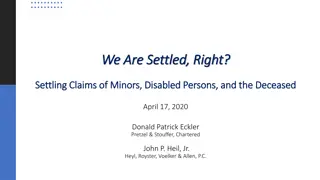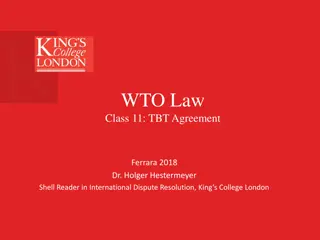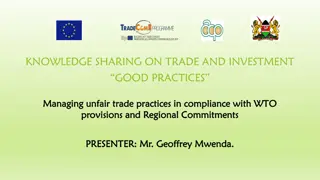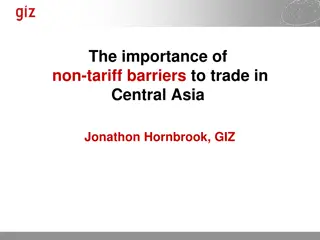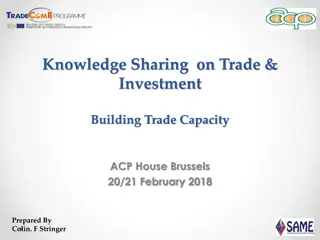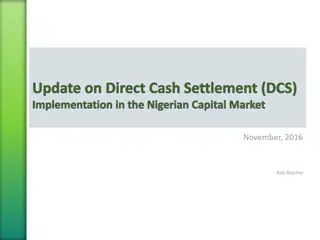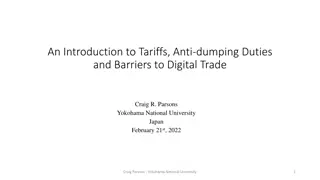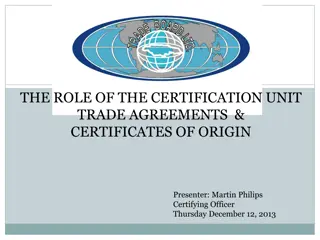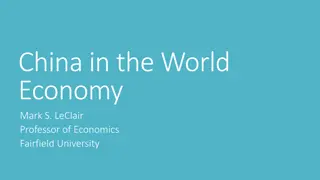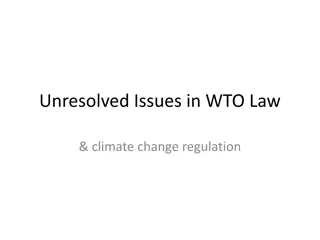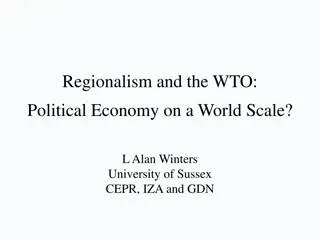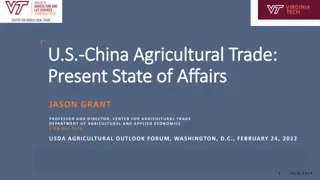The Evolution of WTO Dispute Settlement System and Future of Global Trade
Explore the post-MC13 negotiation backdrop, challenges, and future developments in the WTO dispute settlement system. Delve into the historical progression of international adjudication, from consent to quasi-judicial processes, highlighting the potential for progress and the common challenges faced. Discover how international law and a legal imagination shape the world trade landscape amidst a backdrop of global crises. Gain insights into the transformative journey from diplomatic resolutions to legal adjudication in international disputes.
Download Presentation

Please find below an Image/Link to download the presentation.
The content on the website is provided AS IS for your information and personal use only. It may not be sold, licensed, or shared on other websites without obtaining consent from the author.If you encounter any issues during the download, it is possible that the publisher has removed the file from their server.
You are allowed to download the files provided on this website for personal or commercial use, subject to the condition that they are used lawfully. All files are the property of their respective owners.
The content on the website is provided AS IS for your information and personal use only. It may not be sold, licensed, or shared on other websites without obtaining consent from the author.
E N D
Presentation Transcript
THE WTO DISPUTE SETTLEMENT SYSTEM AFTER MC13 AND THE FUTURE OF INTERNATIONAL TRADE ZHAO HONG, PH.D. PROFESSOR, LAW SCHOOL PEKING UNIVERSITY, MARCH 28, 2024 WEBINAR HELD BY UNIVERSITY OF BOCCONI, ITALY
OUTLINE Backdrop of the post MC13 negotiation Historical perspectives International dispute settlement: From Consent to Quasi- Judiciary Is the progressive route of international Adjudication a progress? Challenges Common to International Adjudication Body The Future of World Trade
LAWIS PART OF A DISTINCTIVE MANNER OF THE IMAGINING THE REAL. Clifford Geeze, Local Knowledge Facts and Law in Comparative Perspective
INTERNATIONAL LAW: A LEGAL IMAGINATION OF THE WORLD BY INTERNATIONAL LAWYERS Conventionally, International adjudicator s role has been regarded as an inquiry into the extent of legal regulation, the exposition and interpretation of relevant rules. But the reform of dispute settlement at WTO requires a normative construction of a formal framework of structure and procedure of dispute settlement and an update of new multilateral trade rules. Before that legal imagination, better we know How these imagination has been formed and displayed in the past history. The Aim is to build a legal conscience which would help the formation of that legal imagination.
BACK GROUND: THE PROBLEMS/CRISIS OF THE WORLD Martin Wolff: Poly crisis world_ Financial Times driving force of the change: Population, Climate, Technology, big nation rivalry, Risks: slow economic recovery meet with rising tensions around the world Uncertainty: manage a changing world Trade regime is expected to play a positive role
FROM CONSENT TO QUASI-JUDICIAL: IS THE PROGRESSIVE ROUTE A PROGRESS Zhao Hong: From consent to quasi-judicial: the Progressive route of International adjudication and WTO DS reform Prof. Louis Henkin: In relations between nations, the progress of civilization may be seen as movement from force to diplomacy, from diplomacy to law (Rochester, 2012, p. 261) The Progressive Route of Dispute Settlement of Human Society: From military actions to diplomacy, from diplomacy to justice. Phase :the law of war and peace war in a civilized manner (From the early stage of human civilization to the Age of Enlightenment: Hugo Grotius) Phase :diplomatic jurisprudence International law layers, International law scholars (James, L. Brierly ): good offices, mediation, consultation, negotiation Phase : Professional Legal Resolution(third-party professional services): mediation, arbitration (temporary, institutional), courts(quasi-judicial, first trial, second trial) Binding third party dispute settlement: from institutional arbitration to Court or Quasi-judicial adjudication (PCIJ, ICJ and AB ) Idealist view of IL: court of law vs. court of arbitration, Utopia v. reality
ICJ S SUCCESSES AND LIMITATIONS Court rulings and consultations has been sound and of high quality though maintain that there are a few extraordinary exceptions, been criticized for elliptical conclusion which at times are not sufficiently supported by reasons, and for insufficient citation of authority. Very recently, due process have been raised. But as a whole and over the years, the Court s procedural and substantive record is very good . ___ Justice in International Law Stephen M. Schwebel, Chief Justice at ICJ
CHALLENGES COMMON TO ALL INTERNATIONAL ADJUDICATORY BODIES How long does the Sovereign State s consent last How to strike a balance between independence and impartiality of adjudicatory body and outside intervention or influence of power politics How to deal with the situation of constructive ambiguities in the rules of treaty and requirement of parties to resolve their disputes over these matters How to manage the influence of differences of major legal systems (civil law, common law and etc.) How to cope with precedent/previous decisions, in particular, while all the current international adjudication provides only authority on case by case bases
FAIR JUDGEMENT OF THE FUNCTION OF INTERNATIONAL ADJUDICATORY BODY To settle the disputes among Sovereign States at the International Adjudicatory Body and the adjudicatory results having been honored and implemented by Sovereign States are an indispensable indicator of the success of its function of International law. The rules, institutions and practices of International Adjudication are the high light of institutional achievement of Human Civilization and should be cherished. Appellate Body should be treated fairly
QUICK COMMENT ON THE MOLINA PROCESS AND TEXT Welcome in general for the process and text delivered It seems to be successful in providing alternative dispute resolution mechanisms via the voluntary use of tools available for resolving disputes without the need for litigation, including arbitration, mediation, conciliation and A good offices etc. To me, these are positive development that could facilitate Members with more options to settle their disputes with fewer costs and more flexibilities and less time. This is maybe of interests to smaller Members and LDCs. Molina text also made progress that is widely praised on stricter limits on the length of submissions, but doubtful whether to be cost of right to defend of parties.
THE MAJOR MISSING PUZZLE IS THE APPEAL/REVIEW MECHANISM For the sake of correcting of possible mistake of panel report which is indispensable for a binding dispute settlement system The Key of the post MC13 negotiation, given the time restraint within 2024, focus and priority should be the restoration or reform Appellate Body, with a view to revive the binding nature of DS at the WTO The current appeal to the void is poisoning to the MTS
THE FUTURE WORLD TRADE The adjustment is undergoing in trade areas The fragmentation and decoupling are not in the interest of the world Protectionism, unilateralism, populism and anti-globalism are harmful to MTS We are at a crossroad, whither the next step? Further our progressive route of international dispute settlement towards the rule based system or a power/politics based system? A single two tier binding dispute settlement at WTO should be revitalized
